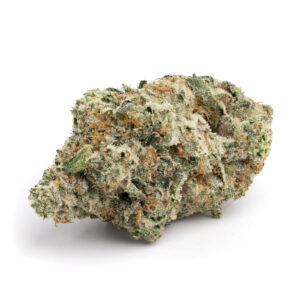It’s 2020, and online weed in Canada is taking off. You love it, your parents are getting into it, and even grandparents are curious about the medicinal value. As of 2019, almost 20 percent of Canadians report cannabis use, according to the government’s own statistics.
But with so many people getting into cannabis culture, are there any health and safety concerns to know about?
The Relative Safety Profile of Cannabis
Whether it’s online weed in Canada or bud you grew yourself, it’s well established that cannabis is a remarkably safe substance. Compared with common illicit drugs (cocaine, MDMA, meth, etc.), cannabis always proves better, no matter what you are comparing.
For example, using data from a Global Drug Survey, researchers looked at the dangers of drugs by the number of reported hospital admissions. They discovered that mushrooms and cannabis were the two safest drugs of choice. The drugs with the most risk included methamphetamine, synthetic cannabis (spice), and alcohol.
In another study comparing something called the margin of exposure, researchers discovered, “Specifically, the results confirm that the risk of cannabis may have been overestimated in the past.” That the amount of risk cannabis poses is insignificant compared with other drugs like alcohol, cocaine, and even tobacco.
Unlike other substances, it’s almost physically impossible to consume enough cannabis to trigger a lethal overdose. Its why you always hear the fact that nobody has ever died from smoking too much weed.
Do you need more convincing about the low risk of cannabis use? As per researchers looking at the administration and dosing of medical marijuana, “Cannabis has a superior safety profile in comparison to many other medications, with no reported deaths due to overdose, due to a lack of CB1 receptors in brainstem cardiorespiratory centres.” Compared with pharmaceuticals, this plant gas fewer side effects and much lower risks.
What are the Health and Safety Concerns of Cannabis Use?
Even if online weed in Canada has an excellent safety profile, it doesn’t mean there are absolutely no risks. Theoretically, everything we expose ourselves too comes with risks. As a primary example, we can die from drinking too much water. As several shocking news stories have documented, when someone drinks too much water in a short period, it can lead to seizures, brain swelling, coma, and death.
Cannabis also comes with some associated side effects, even if they are rare and more mild-mannered than other drugs and substances.
For example, have you ever Greened Out? This is officially called acute marijuana intoxication and is a very uncomfortable experience that may happen when you eat too many potent edibles. Too much THC leads to sensations of fear, anxiety, paranoia, nausea and vomiting. But these effects are short-lived and often disappear with only lingering grogginess after a few hours.
Did you know that smoking too much ganja can lead to the development of respiratory issues? But unlike tobacco, which leads to dozens of chronic and deadly diseases, cannabis is just linked with a bad case of bronchitis (and only if you smoke all day, every day). As the “The Health Effects of Cannabis and Cannabinoids: The Current State of Evidence and Recommendations for Research” reported, the respiratory issues disappear when you stop smoking.
Another issue: THC and the link with psychosis. You may even know someone who seemed to develop schizophrenia after smoking a lot of cannabis. Is this correlation true?
There is a link between cannabis and psychosis, but this link’s direction isn’t well understood. Do people who have a genetic precursor to psychosis decide to smoke a lot of cannabis? Or does cannabis trigger the onset of psychosis in people? We know so far that for some people, excessive consumption of THC in adolescence increases the risk of mental health issues later in life. If you already have a genetic predisposition for schizophrenia, you may wish to avoid smoking cannabis.
How to Reduce the Risks
Nobody knows for sure the percentage of people who smoke themselves into a bronchitis diagnosis. Neither do we know how many people have experienced a THC overdose or risk psychosis. If these are concerns for you, how can you reduce the risk and still enjoy a puff of Nuken or a rip of Coma Kush?
Switch to Vaping and Edibles
If you are a chronic cannabis smoker, the first move you should make is to transition to vaping or edibles. This reduces the particulate matter entering your lungs, and therefore reduces the risk of bronchitis. Vaping is likely a safer alternative to smoking because it’s primarily cannabis vapour, not smoke. If you want to get away from the respiratory tract altogether, consider nibbling on edibles instead. So long as you understand how to dose (low and slow), there are little known risks associated with these tasty treats.
Choose Low to Medium-THC Strains
The higher the potency, the higher the risk for acute marijuana intoxication. Although your friends may tolerate big doses of THC, that doesn’t mean you have the same tolerance. Everyone adjusts to THC differently, including people who can’t handle it all. If you want to reduce the risk of greening out, the best option is to seek well-balanced CBD and THC strains. The more CBD versus THC, the gentler and less anxiety-ridden the high. You can also make the switch to pure CBD products to continue reaping the medicinal benefits of cannabis, but without any risk of intoxication.
Do Not Consumer Cannabis Until Adulthood
Over and over again, science tells us that most of the risks to mental health associated with cannabis use come after prolonged exposure as a young teenager. If you smoke a lot of weed in adolescence, you are more likely to develop depression, anxiety, and a psychotic episode in adulthood. The government set the legal age at 19 (and 18 respectively) for a reason.
Stay Safe As You Enjoy Online Weed in Canada
Nothing comes without risks, including cannabis. Thankfully, we have pretty established data telling us that cannabis is the least risky of most substances, including alcohol and tobacco. It also has a better safety profile than many pharmaceuticals it’s used to replace.
Few people experience the series side effects of cannabis, but they do exist. These include greening out, psychosis, mental health issues, and respiratory issues like bronchitis. If these are a concern for you, reduce the risks and speak with your healthcare provider.






